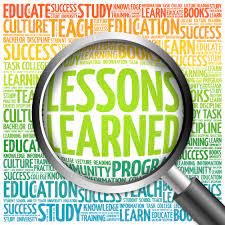[Guest blog post by SMART Facilitator Rick Kuplinski]
Remember being small and being told to “Eat your vegetables. They are good for you!” Remember thinking: “Why? These things (e.g., broccoli, zucchini, green beans, etc.) are disgusting. I’d rather eat something I like. Give me more mac and cheese. Even better: Dessert!” But then (perhaps under the threat of punishment) we gave in, took some timid bites, and choked them down—but without any real motivation or commitment to becoming a veggie lover.
Yet what was more offensive: The actual taste of the vegetable, or (even in our young minds) the idea of someone else telling us what was good for us; what we needed to do?
Sometime later in life, many of us (myself included) discover that we actually enjoy the vegetables we once considered akin to poison. (For me it was Brussels Sprouts.) Often it is because we discover that it is not so bad when we decide to make our own choices about trying it when and in the manner we choose. (Oven roasted with bacon and balsamic vinegar glaze, please.) Then, with even more time the attitude of “This is not so bad” evolves further to “This is really good! I want this!”
This experience demonstrates how we respond to something for “need to” reasons vs. when we look at the same thing with “want to” reasons. If you can’t relate to the vegetable analogy, there may be other things to which you can relate, such as an activity you now enjoy that you previously told yourself you wouldn’t or a genre of music or movie that you resisted appreciating because of popular opinion suggesting that you must.
What we are talking about here is the power of choice. And that is what SMART Recovery is all about. That’s our jam!
Like many people participating in SMART, my journey to long-term recovery was not a straight line. There were many false starts and wrong turns along the way. I can now give you a list of the reasons for that, but at or near the top of it is my looking at quitting my addiction (alcohol) as how I used to look at eating my Brussels Sprouts. There were a lot of reasons why I needed to confront my addiction, but none ended up as being as powerful and as motivating as the one I came to know as the reason that I wanted to. Let me be more specific . . .
Why might I have needed to quit my addiction? Well, it was needed for my health, my relationships, my job and (potentially) my legal situation. Powerful motivators, yes, but they were the reasons I was hearing from the world, rather from deep inside myself. And although these “need to” reasons were enough for me to begin recovery; they were not strong enough to keep me committed to it. There were just too many excuses, rationalizations, and loopholes I found for all of them.
Why might I have wanted to quit my addiction? Well, that took some sober time and some patience with the recovery process to clearly understand. It was because . . . I wanted my self-respect back. I wanted to like myself again.
Delicious! This became my number one, super-powerful motivator for me to finally resolve my ambivalence about quitting alcohol and it remains the reason I am finally committed to lifelong abstinence. But it was more an acquired taste than it was love at first bite. That evolution of my “need to” reasons into my “want to” reason was the result of the clarity that came from extended abstinence (extended = longer than I had in a long time) and the confidence I was gaining to look deeper inside myself at what alcohol had been doing to me in relation to my self-respect and self-esteem.
What about you? Have you thought about the differences between your “need to” and “want to” motivators? If you haven’t, then I highly recommend trying the Hierarchy of Values (HOV) tool you will find on Pages 14 to 16 of the SMART Recovery Handbook or check out this HOV video. This simple exercise might help you experience that “a-ha” moment when you get more in touch with what that powerful reason inside you might be. The reason you want to be successful in recovery vs. the reasons you might also be hearing that you need to.
To find and in-person or online meeting go to the “Meetings” tab at www.smartrecovery.org




